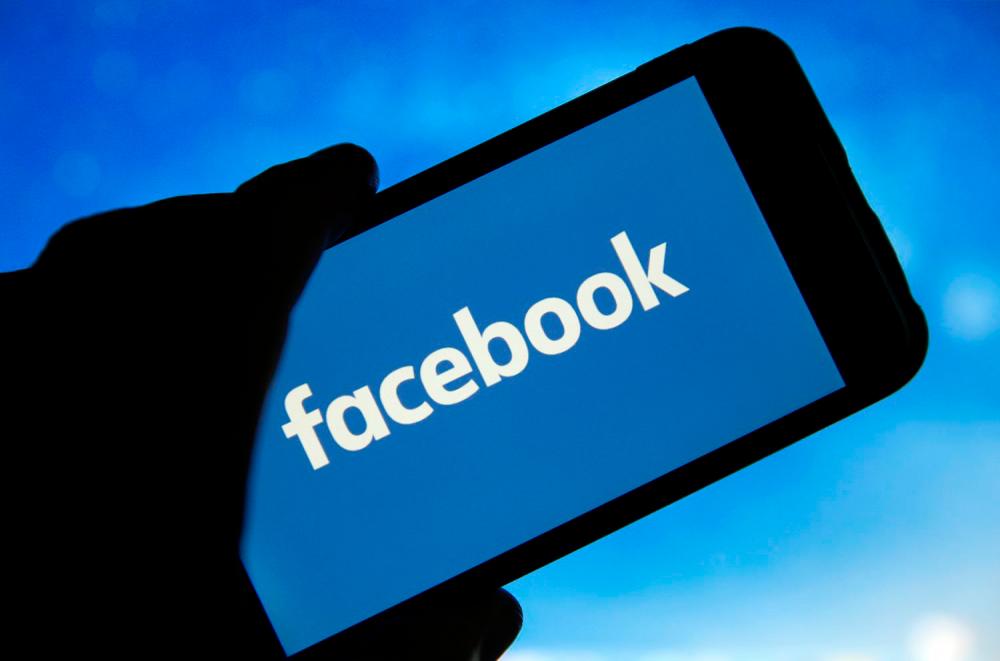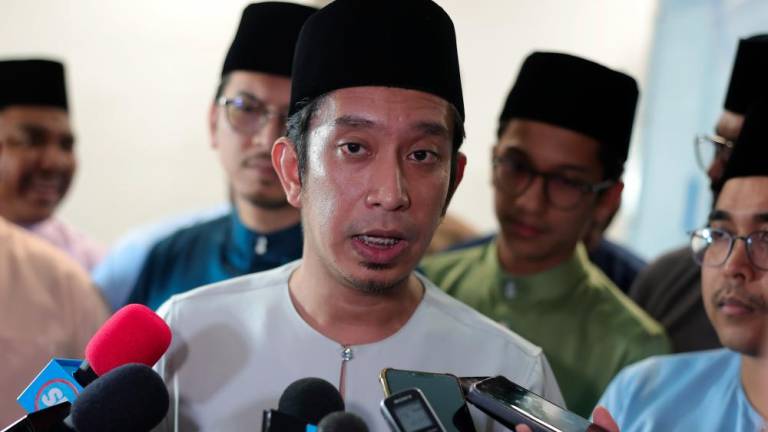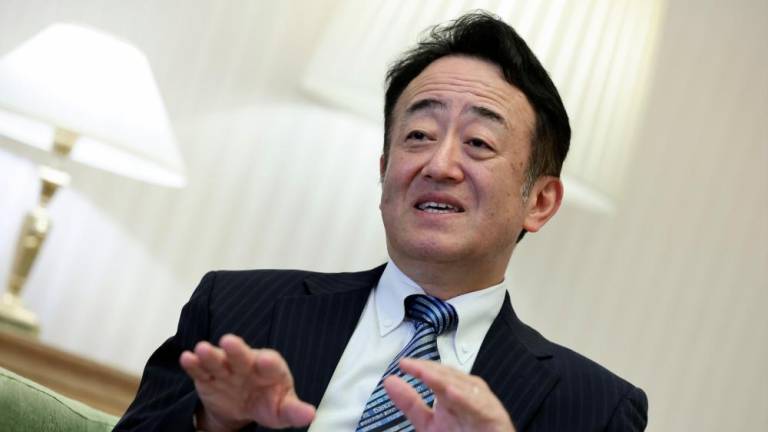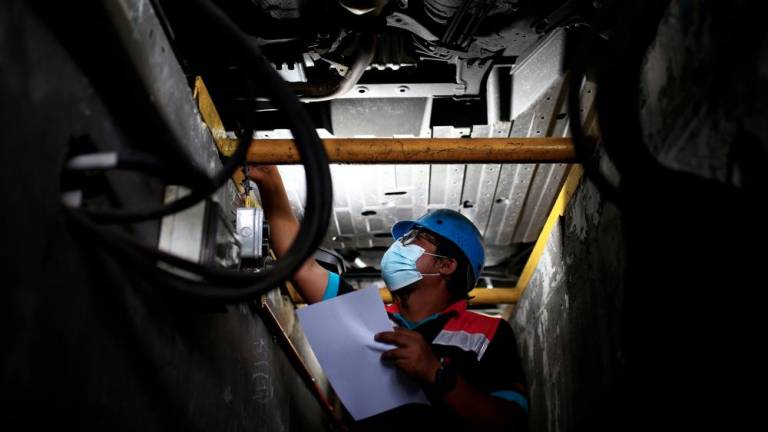SOCIAL media has been a staple in the lives of many that it is virtually impossible to divorce our lives from social media given its wide-spreading use in our day-to-day activities.
This is true for me, and may also be the case with other social media users, that it is high time we looked at how these tools are impacting our lives and the measures we can employ to control our use of social media.
I once believed that social media was only a tool and as with any tool, depended on how it was used.
I likened social media to a knife designed to cut an object. If the knife is used for other purposes which are detrimental, then the blame is not on the knife but on the person who misuses it.
I now realise how simplistic an argument it was, for social media in actuality is making it substantially easier for users to disseminate harmful content, incite violence, to name a few.
Mark Zuckerberg in his Facebook post on Jan 7, stated that Facebook and Instagram have indefinitely banned former US president Donald Trump for using their platforms “to incite a violent insurrection against a democratically-elected government”.
The following day, Twitter, as stated in its blog, permanently suspended Trump’s Twitter account “due to the risk of further incitement of violence”.
The moves by Facebook, Instagram, Twitter and a few other social media corporations were in response to the assault on Capitol Hill on Jan 6 by Trump’s supporters, who rallied in support of Trump who “incited his supporters to march to Capitol Hill” where Congress was sitting to certify Joe Biden as the 46th President of the United States. It can be seen from the events that social media is not just a tool.
It has morphed into a behaviour-modifying tool, affecting not only young children and teenagers but also adults.
To shed light on the deleterious effects of social media, I recommend watching The Social Dilemma (2020), a Netflix documentary-drama which features a handful of tech insiders who offer insights into the mechanics of social media and the effects on its users.
In the documentary, Tristan Harris, a former design ethicist at Google who later co-founded Centre for Humane Technology, says that “we have moved from having a tools-based technology environment to an addiction- and manipulation-based technology environment”.
This is a huge concern as social networks are designed to keep us engaged on the screen.
It is not only about the hours we lose to the platforms; it is more the control we lose to them as we are being fed with content that we do not require or look for, that could affect our worldview and decision-making.
I recently purchased a pair of shoes from a brand I had never heard of, until I saw its advertisement on my Facebook feed.
Now, consider the number of times you bought items that you never searched for but were recommended to you on your Facebook feed.
What happened to you and me was not a coincidence as there are algorithms at play that predict our interests, based on our online activities.
In the same documentary, Jeff Seibert, a serial tech entrepreneur who is formerly an executive at Twitter, says that our online activities are being watched, tracked and measured.
It should come as no surprise then that social media could provide recommendations that we may not look for but are related to our interests based on the “clicks” or “taps” we have made.
Whether this recommendation system is necessarily a bad thing is up for discussion.
The way I see it, it is a bad thing if we let social media control our decision-making by giving them hours of our time daily and effectively allowing them to modify our behaviour and affect our decision.
Though we could, to a certain extent, determine the kind of information that we devour, social media corporations which are selling our attention to advertisers cannot simply walk away from the fact that their inventions are adversely impacting their users, through the dissemination of poorly-regulated content.
Dangerous content available on social media may affect its users, especially young children who are more vulnerable to such content and may follow or replicate what they see on their screen. This is not an exaggeration.
On Jan 21, an Italian girl aged 10, who was found with a belt tied around her throat, was pronounced brain dead by a hospital in Palermo, after allegedly taking part in the “Blackout Challenge” on the video-sharing social network, TikTok.
The challenge “encourages participants to choke themselves until they pass out for several seconds, which is meant to result in a high”.
Following the untimely death, the Italian Data Protection Authority provisionally “banned TikTok from further processing the data relating to any user whose age could not be established with full certainty so as to ensure compliance with the age-related requirements”.
In response to the order by the Italian authority, TikTok is blocking access to all Italian users from today, and requesting them to re-enter their date of birth for verification, removing users aged below 13.
The action taken by the Italian authority is imperative and highlights that social media corporations must not be left unchecked and unregulated, especially given their pervasive consequences.
Given the damaging effects of social media, how can we protect ourselves and loved ones from being controlled and manipulated by social media?
As Tristan Harris said in The Social Dilemma, “it (social media) is confusing because it is simultaneous utopia and dystopia”.
On an individual level, what we can do is limit our screen time. I share the belief of many that social media is fundamentally a force for good, and I have personally experienced a lot of wonderful things through the platforms.
However, I cannot deny that social media is highly addictive and manipulative, and that the negative effects may outweigh the positives.
In the documentary, Jaron Lanier, a computer scientist, the founding father of Virtual Reality and the author of Ten Arguments for Deleting Your Social Media Accounts Right Now suggests that we get out of the manipulative social media ecosystem.
Of course, this depends on which path one is willing to traverse.
To parents, please supervise your children’s online activities, especially in this age where information – and disinformation – is easily accessible in a few “clicks” or “taps”.
While we demand social media corporations create a safe environment for our children, we must not leave our children in the hands of the corporations.
We should also continue to push legislators to craft policies surrounding social media, and to push regulators to penalise social media corporations that fail to protect their users.
Though it may be difficult to beat the system so intricately designed to keep us hooked on the screen, let the negative consequences as reported on news and as can be seen around us be a clarion call for us to exercise caution in using social media.
Comment: letters@thesundaily.com













